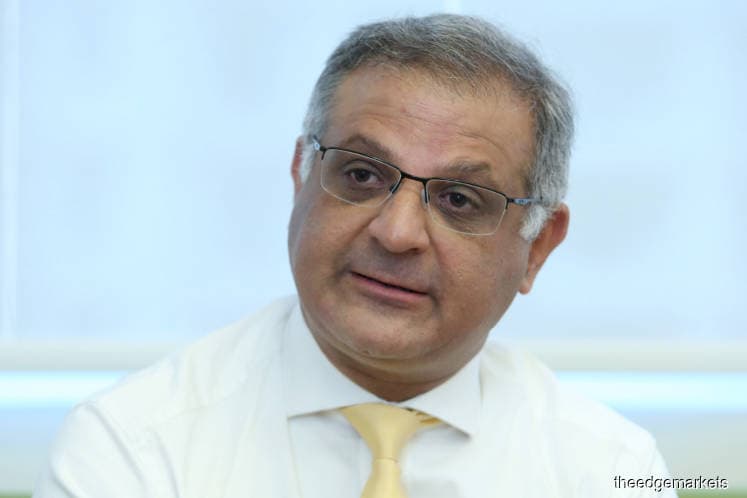
This article first appeared in The Edge Malaysia Weekly on December 16, 2019 - December 22, 2019
IN a way, Petroliam Nasional Bhd’s stake sale in Petronas Dagangan Bhd, Petronas Gas Bhd and MISC Bhd to Malaysian institutional funds exemplifies the shared prosperity vision advocated by Prime Minister Tun Dr Mahathir Mohamad.
Last Monday, PetDag saw a 5.94% stake traded at RM22.43 per share, or RM1.32 billion, representing a 1.22% premium to the day’s closing price of RM22.16. PetGas saw a 9.66% stake traded at RM15.03 per share, or RM2.87 million, a discount of 2.4% to its last closing price of RM15.40 that day. At MISC, a 5.11% stake was traded at RM7.94 per share, or RM1.81 billion, representing a discount of 4.22% to its closing price of RM8.29 that day. The counter was trading at a three-year high at the time.
Possible buyers include the Employees Provident Fund (EPF), Permodalan Nasional Bhd (PNB) and Kumpulan Wang Persaraan (Diperbadankan) or KWAP — all household names whose stakeholders are none other than the Malaysian public — as well as sovereign wealth fund Khazanah Nasional Bhd.
It is common knowledge that the EPF and PNB are hungry for new assets to invest in, to the point that they have been venturing overseas in recent years.
By releasing the portion within Petronas, steady dividends can be funnelled to Malaysians and Petronas — or the government — can tap cash that was otherwise trapped in the institutions.
As one fund manager pointed out, the release concurrently increases the liquidity and free float for the market, which are key factors to attract foreign inflows.
The same can be achieved via the sale of other unlisted Petronas units to the oil-producing states, says IQI Global chief economist Shan Saeed.
“It is like a participative strategy with all stakeholders to enhance the market value of Petronas,” he says.
“It clearly illustrates the strategic intent of the government to provide opportunity for involvement in the betterment so that it brings economic benefits ... at the ground level — the shared prosperity theme is to uplift the [general public] for better living standards and social and economic empowerment.
“It is also a change of structure, as aligned with market forces expectations. It is purely a market-driven approach with more political autonomy of states.”
On the other hand, Petronas did not specify how it will utilise the proceeds from the sale of its interests in the listed companies.
In one way, the proposed sale to Sabah and Sarawak appears to be a move to pacify their demand for a higher 20% oil royalty, from 5% presently.
It is a question of whether Sarawak is willing to tap its RM30 billion cash reserves for such an arrangement. Sabah reportedly has reserves of slightly over RM4 billion.
Amid prolonged low oil prices, oil and gas-reliant countries and companies are diversifying their portfolios to remain sustainable. That requires both expertise and investments.
These indicate tough times ahead for Petronas’ management while the government seeks to steer its own finances onto the right track.
Save by subscribing to us for your print and/or digital copy.
P/S: The Edge is also available on Apple's AppStore and Androids' Google Play.